A systematic and accurate monitoring of atmospheric weather conditions is a necessity for Meteorological studies. The proper observation of atmosphere and its phenomena, particularly weather and climate data are the base of all scientific investigations leading to its accurate climate predictions. This is possible only with the help of sensors having good accuracy and reliability along with its data recorders and transmitters. Meteorologists study factors like Temperature, Relative Humidity, Wind-speed, and Precipitation to provide forecasts and insights about Atmospheric conditions. Their work helps in various fields, including Agriculture, Aviation, Disaster management etc. to name a few.
The data collected by them, can be further used for processing using algorithmically simulated models by the help of computers to predict climatic changes and changes happening in weather patterns.
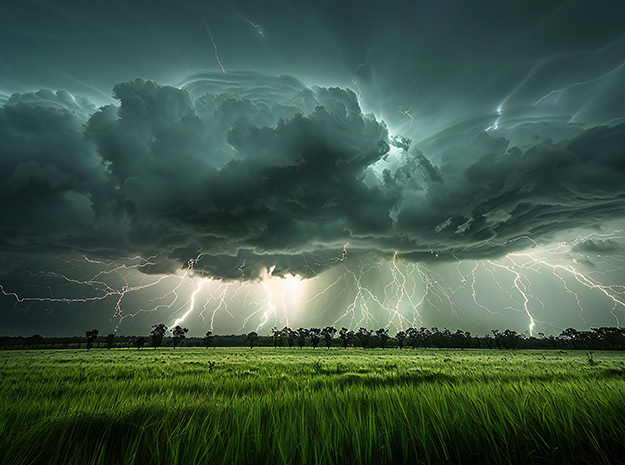

The agricultural industry in general encompasses the production, processing, and distribution of food, fiber, and other products derived from plants and animals. It includes a wide range of activities, such as pre harvesting, harvesting and post harvesting activities. The introduction of Innovating new farming techniques using sensors and advanced electronic devices have totally reorganised the industry. Precision in irrigation to optimise the use of water and fertilisers is one area where lot of sensors have come in. The sensors are mostly IOT enabled, making them function remotely as per the need of the user. The introduction of such technologies has proved better control on the farming practices and helps farmers in saving money by optimising the resources such as water and fertilisers.
Applied areas: Open farms, Precision farming practices in poly houses, Green houses, Horticultural plant production, Aqua-culture, Agroforestry etc…
In Hydrology the constant monitoring and measurement of parameters which are related to water in the environment and its distribution, movement, and properties of water in the Earth’s atmosphere, on land, and underground are measured and monitored very precisely. Measurements such as Water level and Surface water flow/current in different water bodies like rivers, lakes, ponds, reservoirs etc. Study on Water cycle, Ground water monitoring, Hydrological Modelling and finally Water management is done using scientific sensors and its measuring devices. Hydrology is crucial for managing water resources, supporting agriculture, maintaining ecosystems, and planning urban infrastructure.
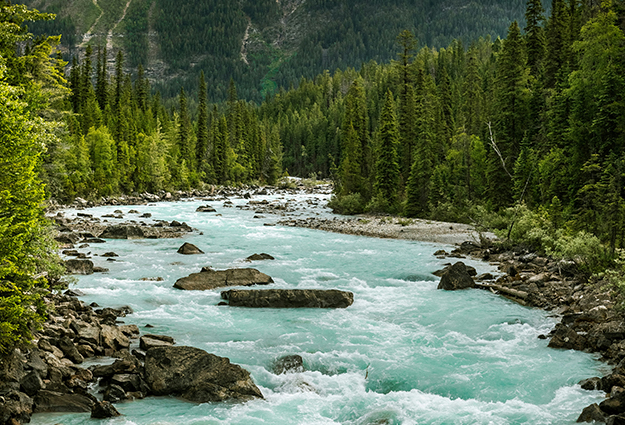
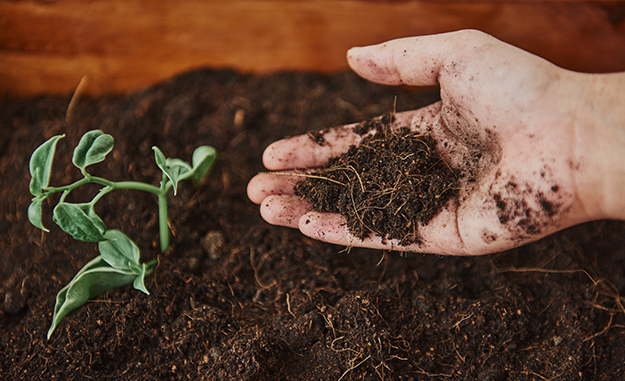
The field of soil science have developed by monitoring different soil conditions by monitoring Soil Moisture, Soil Temperature, Soil Conductivity, Soil nutrients, and classification of different soils. In the field of soil conservation many unique explorations are done using sensors and measuring equipment for monitoring prevention of soil erosion, degradation, and contamination etc. Soil science is essential for effective land management, agriculture, environmental protection, and understanding the ecosystems.
By introducing sensors in post-harvest technology, the Agri-products are mostly handled and processed in a conventional way. New methods, practices and procedures keeps on updating very frequently and are introduced using sensors and equipment by processing, the produce in desired and controlled conditions using varied temperature and Humidity to increase the shelf life and consistency of the produce. New methods introduced helps the producer in getting higher price and extending the shelf life of the produce. The ultimate goal of using such sensors and instruments is to reduce losses, maintain quality, and extend the shelf life. The sensors can be used in areas such as Harvesting technology to ensuring that crops are picked at the right time and with minimal damage.
Environment : By implementing appropriate conditions (temperature, humidity, ventilation) to keep products fresh.
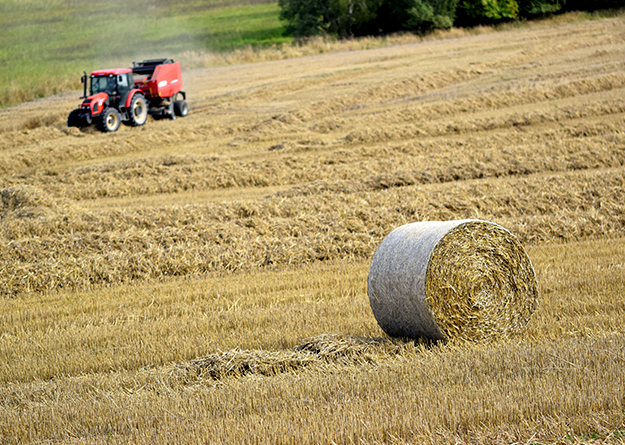
Processing : Transforming raw products into forms that are easier to store and consume, such as canning, freezing, or drying.
Quality Control : By maintaining the best optimal environment suitable for each crop/agri-produce ensuring longer life and reducing the spoilage there by ensuring that only high-quality products reach the end consumers.
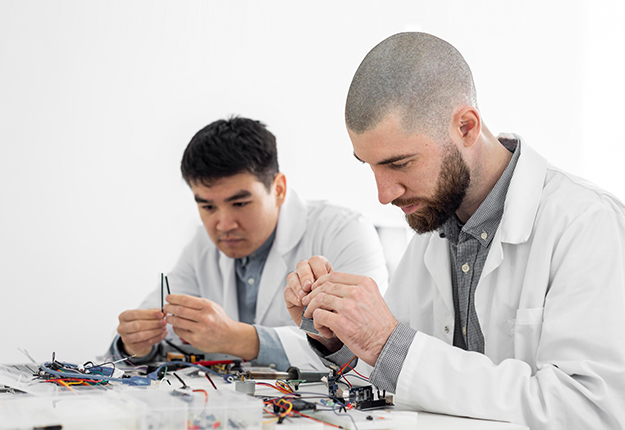
EMCON has got 30 years of experience in designing various sensors to cater the specific need of customers ranging from Defence Research and Development Organisation (DRDO), Private Oceanographic survey companies, Indian Council for Agricultural Research (ICAR), Agricultural colleges, IIT’s and NIT’s to name a few, who are our regular customers where we collaborate with them in designing and developing sensors and measuring devices to cater the specific needs for them in emerging new areas and applications .
They involve understanding the need of the customer by understanding the specific requirements of customers, such as the type of data needed, environmental conditions, and the intended.
Design and Prototyping : Developing prototypes that incorporate the necessary features, such as sensitivity, accuracy, and size. This phase may involve choosing the right materials and technologies.
Customization : Modifying standard sensor designs to meet unique customer specifications, such as integration with existing systems or special calibration for particular conditions.
Testing and Validation : Conducting rigorous testing to ensure the sensors perform accurately and reliably in real-world conditions. Feedback from customers is taken at multiple levels for better reliability of the product.
Support and Maintenance : Offering ongoing support, including software updates, maintenance services, and assistance with integration into customer systems.
By focusing on these aspects, we make sure that our customers experience comfort in moving along with us and that the product designed meets their demand and expectations .
<
The scientific study of the ocean and its various components, including physical, chemical, biological, and geological aspects can be explored and monitored consistently only by using the state-of-the-art technology and reliable instruments and integrated sensors. Various sensors are used in the following applied areas are measurement of Ocean currents, Waves, Tides, and the physical properties of seawater such as Conductivity, Temperature and Salinity and Depth.
Sensors for Chemical Oceanography are as follows, Dissolved Oxygen, pH, Conductivity, Salinity and Temperature.
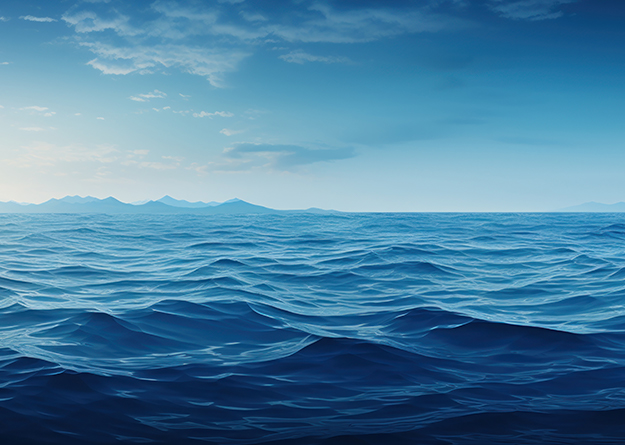
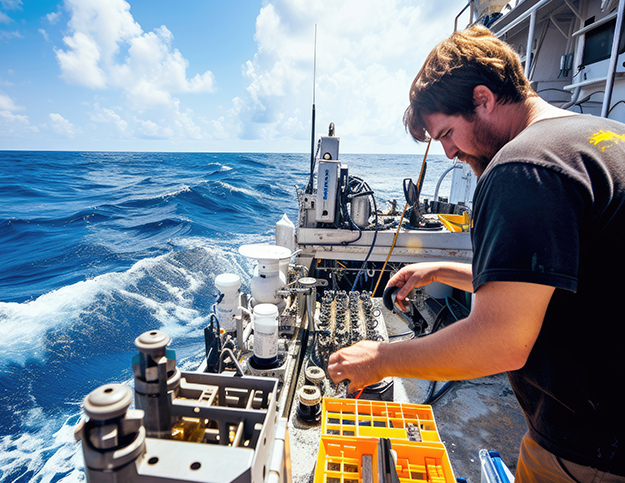
Ocean engineering involves the design and construction of structures and equipment that operate in or near the ocean. Various sensors are available to measure multiple parameters in an Off-Shore Lab set up such as flume or tank .
Sensors: Wave sensor, Anchor load sensor, Tilt, Heave of a floating body……………………………………………………………………..Sediment transport, Silt in suspension, Coastal infrastructure like Seawalls and jetties and their impact on waves.
Sensors on Buoys : Devices that monitor oceanographic parameters such as wave height, wind speed, and water quality.